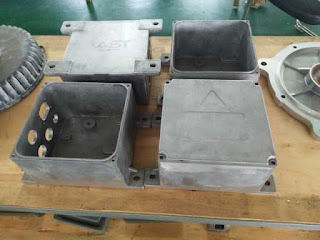All the Alloy Die Castings
Die casting professionals need access to a wide variety of casting materials in order to meet the varied needs of their customers. Patrons of die casting facilities could come to those companies with the need for light-weight materials, materials with RFI or EMI shielding qualities, materials that are highly ductile, materials that have high-strength to weight ratios and all kinds of other specific material quality requirements. In order to respond to the diverse needs of their customers, die casting service personnel need to have thorough knowledge of different alloys and the alloy die casting process. This involves knowledge of the metallurgical properties of the materials they will work with as well as the operational details of the equipment they use.
There are a handful of nonferrous metals that could be described as the most commonly die cast alloys. The main ingredients in these alloys are aluminum, zinc, copper, tin, magnesium and lead, though some other materials are also used. When alloyed with each other and with other metals in different ratios, each different alloy behaves differently during and after the casting process. Magnesium, for example, is valued because of its light weight, but because of its physical properties it cannot be processed by hot chamber casting equipment; instead it must be processed in the often slower cold chamber casting equipment. This is also true of aluminum, the alloys of which are some of the most popular die casting materials.
Despite the variedness of die casting material options, there are some consistent physical qualities that all finished die cast products share, at least to some extent. Almost all finished die castings are distinctly characterized by their good surface finishes compared to other casting processes and their dimensional accuracy; in other words, most die castings feature quality finishes and emerge from their dies extremely close in form to their prototypes.
To know more about die casting parts please go to our mean website

No comments:
Post a Comment